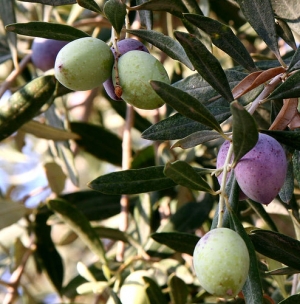Olive oil is touted for its health benefits and researchers may have found a way to increase those benefits. A recent study shows that by changing irrigation practices in olive groves, farmers can produce healthier olive oil.
By giving the trees less water at calculated times, researchers found that the olive production of the trees remained steady while beneficial compounds called phytoprostanes increased, according to Phys.org. There's evidence that phytoprostanes not only protect plants against oxidative damage, but they may also support the vascular system and the immune system.
Regulated deficit irrigation — or RDI as the researchers call it — is used to decrease the amount of water given to the olive trees in a specific, controlled manner. The Spanish researchers restricted irrigation during the growth phases when water stress had no impact on fruit production. Over two years, the researchers experimented with a 7- by 5-meter olive grove, watering when needed, but using irrigation when less water was necessary during the phase of pit hardening. The result was a more sustainable method of watering olive trees that's healthier for the Earth while producing a food that's healthier for humans. And since olive oil is a primary component of the Mediterranean diet, one of the healthiest diets you can follow, that makes sense.
Interesting fact: In vineyards, established grape vines that don't get watered will send their roots deep into the soil to look for water. The hardworking vines produce intense, ripe grapes that make bold wines like Garnacha.


